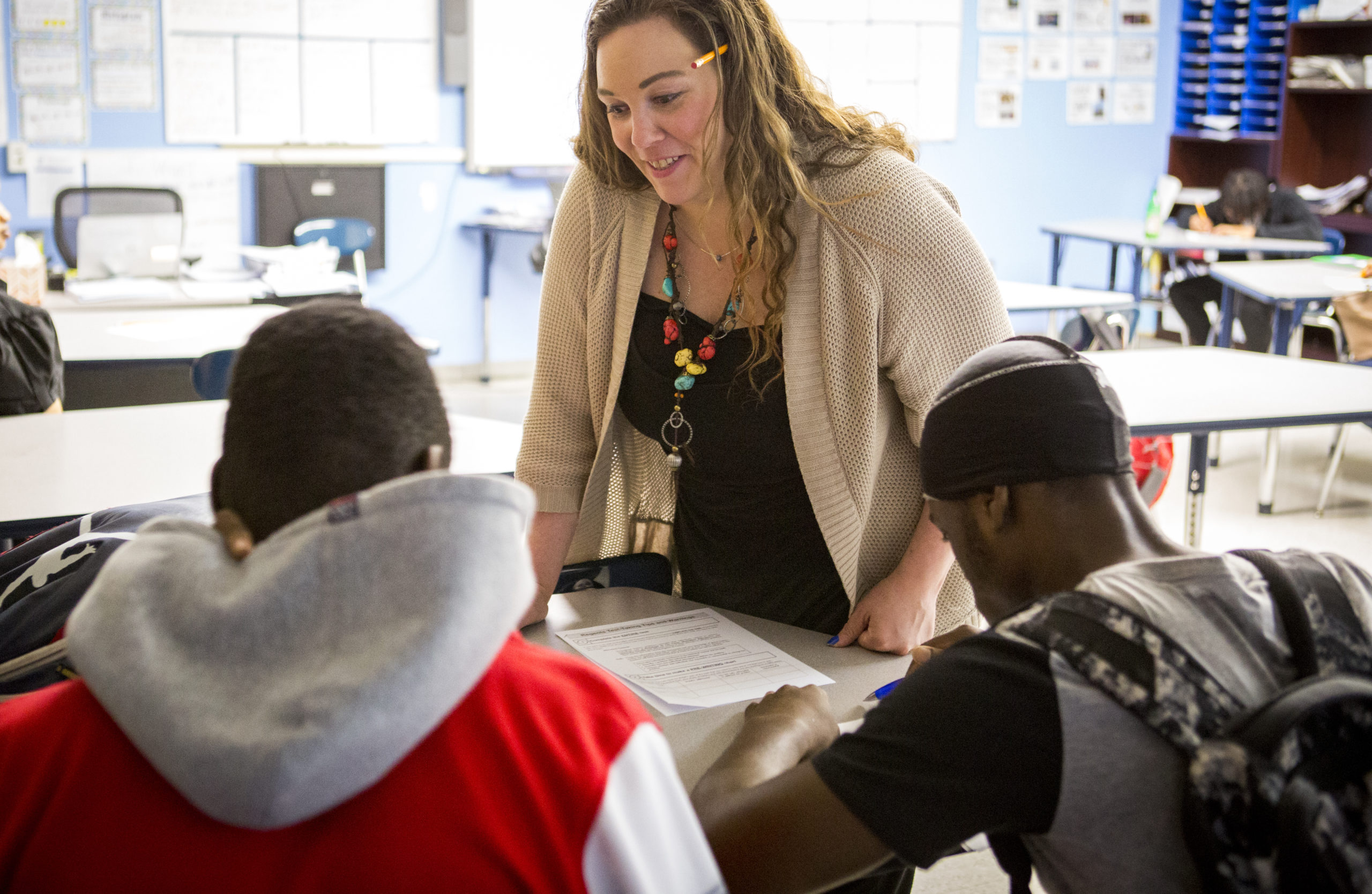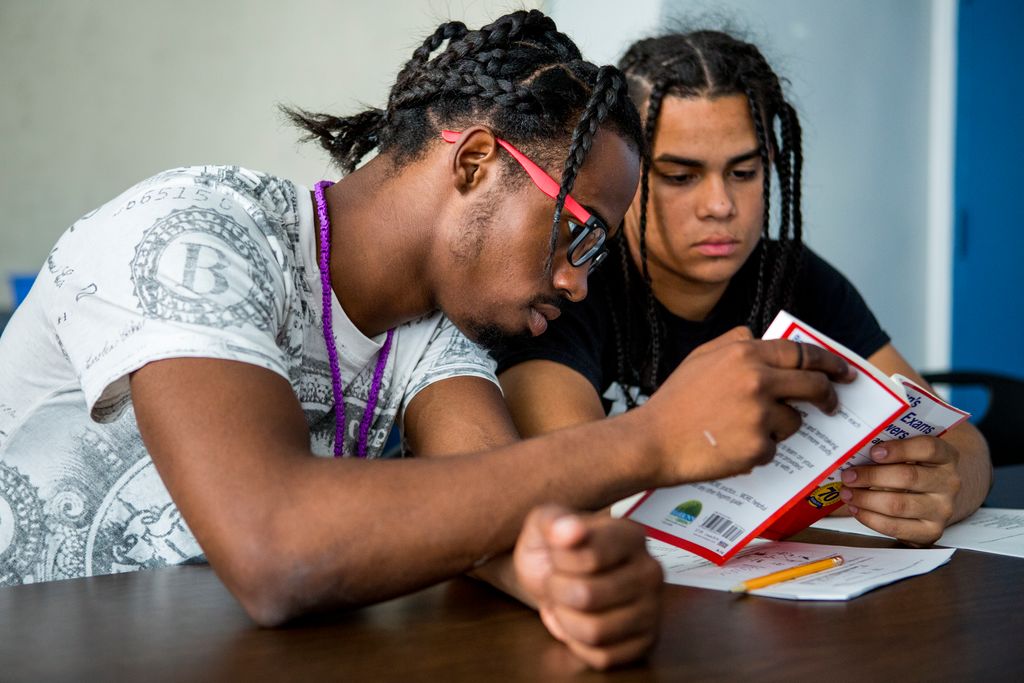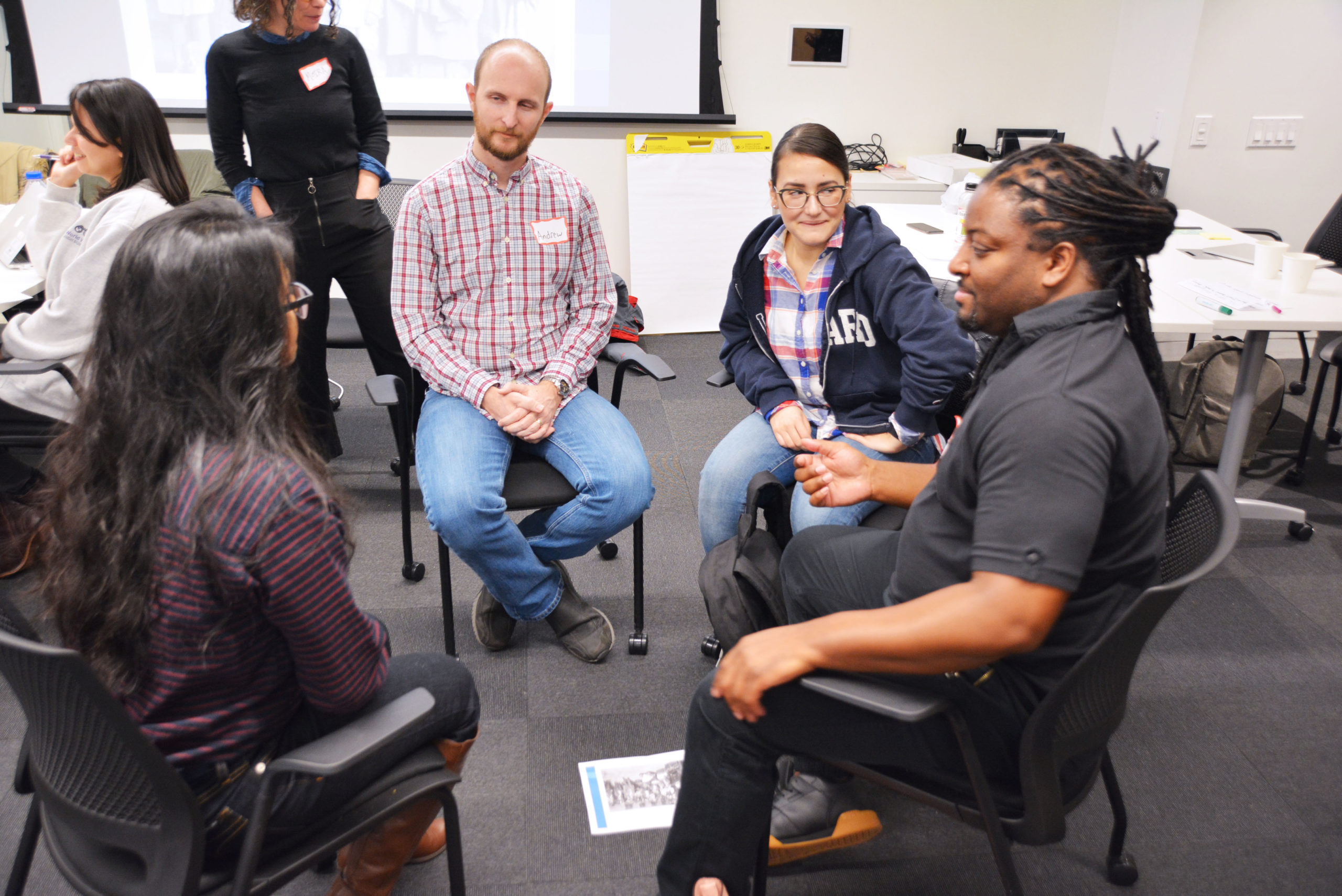Supporting Curriculum Adoption with School Libraries
About the Project
School librarians understand literacies and the varied strategies that develop literacy in content areas, while classroom teachers understand content knowledge but not necessarily content literacy.
Classroom teachers are the experts in content-area curriculum. School librarians, while familiar with developing collections to support learners at all levels, are not necessarily familiar with specific high-quality curricula.
Therefore, this project will explore
- how school librarians and classroom teachers can deepen their understanding of the cognitive strategies that will increase core content area teachers’ confidence and ability to build students’ disciplinary literacy with the support of school librarians’ expertise, and
- how school librarians and classroom teachers can build a shared understanding of the intersection between high-quality curricula and varied learner needs to increase the school librarians’ confidence and ability to develop a collection grounded in curricular support with the support of the classroom teacher’s expertise.
Approach
-

Culturally Responsive Pedagogy
This project will be grounded in and guided by statements regarding culturally responsive pedagogy made by the American Library Association, including the 2016 statement “Keeping Up With… Culturally Responsive Teaching”
As stated therein, “Libraries can influence culturally-responsive teaching through collections and programming. Academic librarians can foster ‘diverse learning opportunities through culturally relevant library collections’ by purchasing works written by authors with diverse backgrounds and containing subject matter that reflects differing realities and perspectives, increasing opportunities for students to encounter views that might be different from their own.”
As school libraries partner with content teachers to support student growths, effective librarianship will provide the windows and mirrors students need to see themselves in whatever subject area they explore.
-

Literacy
Disciplinary literacy is the set of skills that allows learners to read, to write, to speak, to listen, and to think conceptually and critically in a certain subject.
For several years, New Visions has provided professional learning that helps teachers develop their competence in supporting their students’ reading comprehension and analysis within their subject areas through explicit instruction of active reading strategies. K-12 students who know and can deliberately activate these reading strategies are shown to have greater academic achievement and learner independence (Hammond, 2015; Olson et al, 2015).
Similarly, New York school librarians have worked with the understanding that “The empowered learner calls upon information/inquiry skills to connect with what he or she knows, ask intriguing questions about what is not known, investigate the answers, construct new understandings, and communicate to share those understandings with others.” (Empire State Information Fluency Continuum, 2019). They recognize that the approaches needed for developing the literacy skills which underlie genuine inquiry vary by grade and by content.
-

Adult Learning
As noted, school librarians understand literacies and the varied strategies that develop literacy in content areas, while classroom teachers understand content knowledge but not necessarily content literacy.
Classroom teachers are the experts in content-area curriculum. School librarians, while familiar with developing collections to support learners at all levels, are not necessarily familiar with specific high-quality curricula.
In the pilot year, adult learning will be grounded in the collaborative sensemaking of school librarians and classroom teachers about how best to explore, understand, and meet the project’s goals.
Professional Learning Plan
| Year | Goals: Cross-Content Literacy and Embedded Curriculum Support | |
| Spring 2025
Pilot Year |
Develop a model of library-classroom partnership in this area
|
|
|
||
| SY 2025-26
Testing Year |
Develop “spread plan” for the model
|
|
| SY 2026-27 | If the pilot year and testing year demonstrate success with the models, a plan for spreading the work will be proposed. | |
Project Team
-
- Aliza Kapel
- Russell West Jr.
Contact
For questions about the project please email us at schoollibrariesteam@newvisions.org